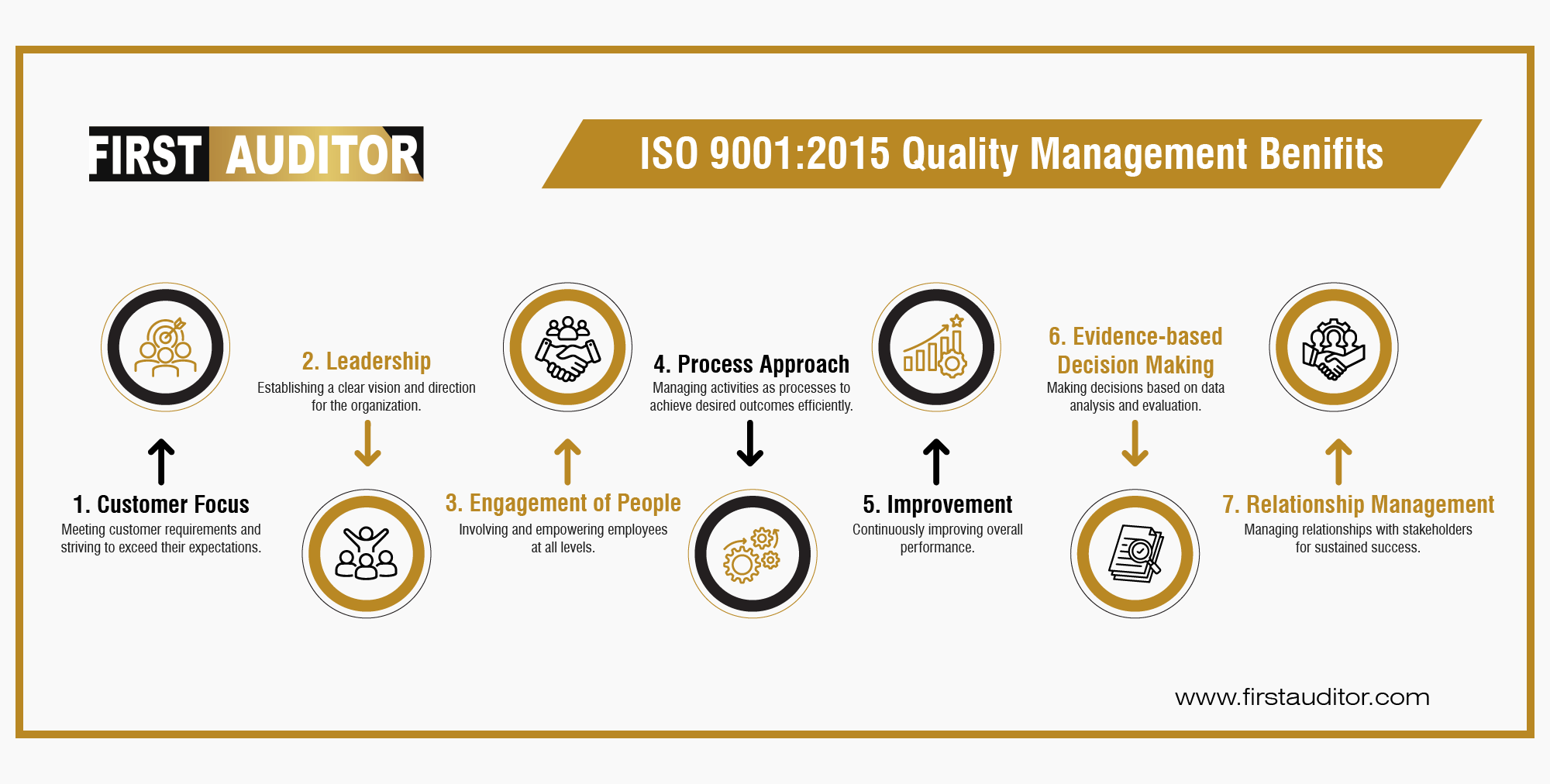ISO 9001:2015 is the latest version of the ISO 9001 standard, which was updated from the previous version (2008) to better reflect modern practices. Here are some key aspects of ISO 9001:2015:
ISO 9001 is built around several principles, such as customer focus, leadership, engagement of people, process approach, improvement, evidence-based decision-making, and relationship management
Organizations can become certified by undergoing an audit by an accredited certification body. This demonstrates their commitment to quality management and can enhance their reputation.
ISO 9001:2015 can be implemented by any organization, regardless of size, industry, or type. Here are some key groups that typically pursue ISO 9001:2015 certification:
Meeting customer requirements and striving to exceed their expectations.
Establishing a clear vision and direction for the organization.
Involving and empowering employees at all levels.
Managing activities as processes to achieve desired outcomes efficiently.
Continuously improving overall performance.
Making decisions based on data analysis and evaluation.
Managing relationships with stakeholders for sustained success.

ISO 9001:2015 is an international standard for quality management systems (QMS). It provides a framework for organizations to ensure consistent quality in their products and services, improve customer satisfaction, and achieve continuous improvement.
ISO 9001:2015 is applicable to any organization, regardless of its size, type, or industry. This includes manufacturing, service, construction, retail, technology, hospitality, healthcare, and many other sectors.
Benefits include improved product and service quality, enhanced customer satisfaction, increased operational efficiency, better regulatory compliance, and a stronger competitive position in the market.
The time required varies depending on the size and complexity of the organization. On average, the certification process can take between 6 to 12 months, including preparation, implementation, and the audit process.
ISO 9001:2015 certification is typically valid for three years. However, organizations must undergo regular surveillance audits (usually annually) to ensure ongoing compliance with the standard.